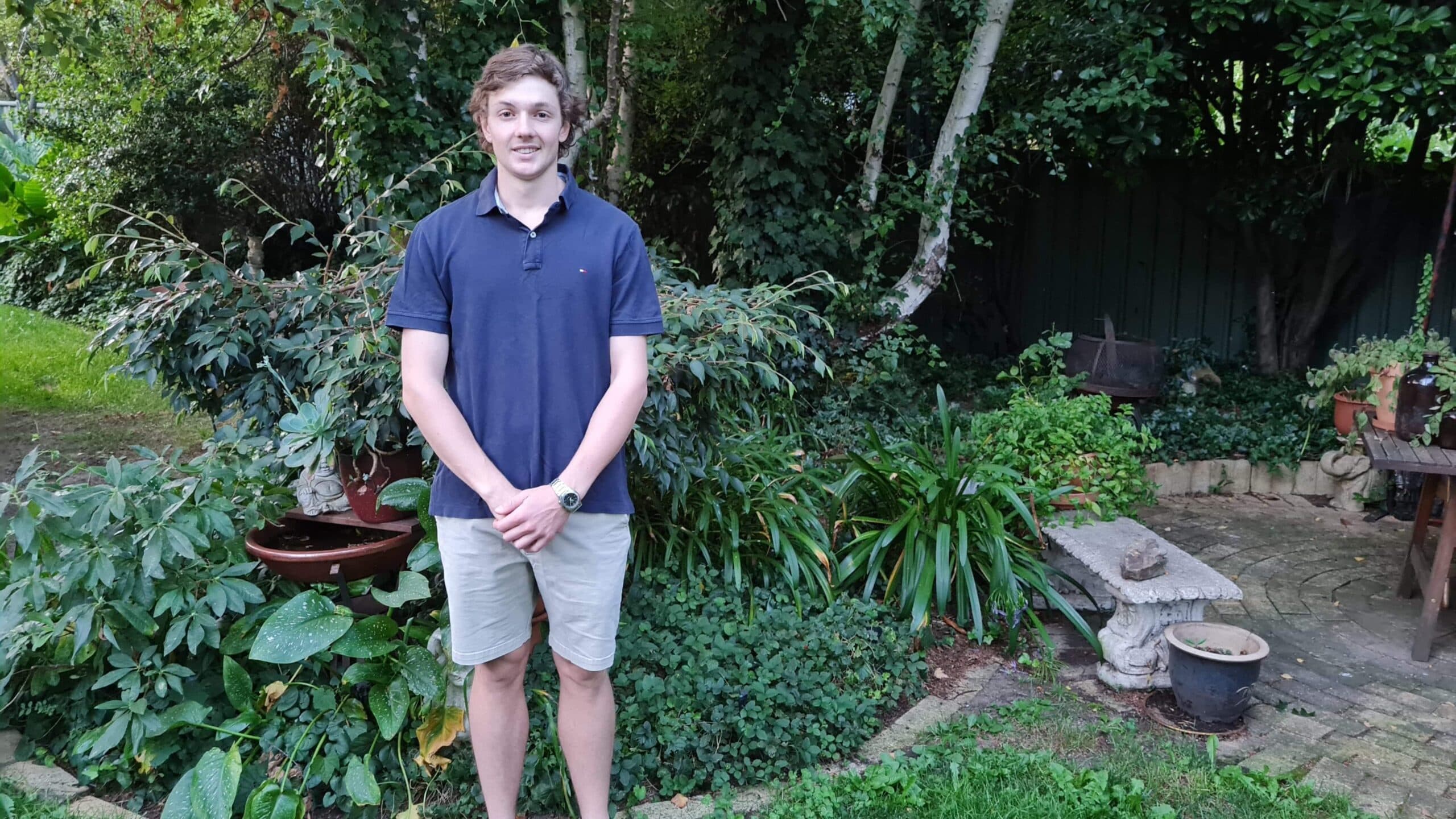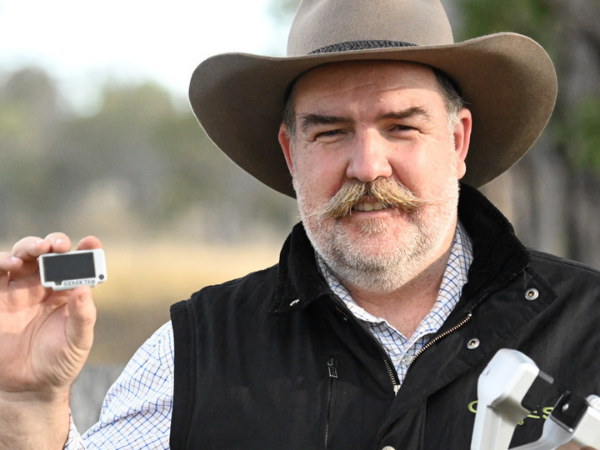Bill says he got lucky while googling new agtech companies for his work placement, as part of the Scholarship.
“I wanted a company that was just starting its commercialisation process so I could understand what it takes to get from an inspiring thought through the startup phase and into production, and Ceres Tag popped up,” says Bill.
“I thought the company really had its finger on the pulse of the beef industry so I reached out to managing directors David and Melita Smith and found them hugely welcoming. The whole experience has been really eye-opening.”
Scholarship supports young leaders
Bill was sponsored by the Grains Research and Development Corporation (GRDC). He’s a fifth-generation cattle and cropping farmer from Gunnedah in New South Wales and studying a Bachelor of Science degree at the Australian National University.
Bill completed his Horizon Scholarship Work Placement at Ceres Tag, the world’s first animal monitoring information platform with direct to satellite capability through a smart ear tag. The innovative technology has enabled scalable monitoring of biosecurity, health, welfare, performance, and traceability of the supply chain network for cattle, and is currently being tested on wild animals.
Online insights show progress of Ceres Tag
“I had a great chat with David and Melita about how they went about establishing the company. I was blown away by how hard it is – you just take it for granted when it’s only a Google search away, but there’s a lot that goes on in the background. It was really insightful to learn how to build, develop and run such an impressive agtech company,” Bill says.
A bonus was that Bill could do his work placement virtually, from interstate.
“I was involved in all the day-to-day activities of the business, from brainstorming sessions for new ideas to meetings about quality policy and marketing. The whole Ceres Tag team went out of their way to explain their roles, outline the challenges and discuss what they were doing,” he says.
Interoperability the key to helping farmers
To complement his work placement, Bill researched market access and studied the areas of agriculture that Ceres Tag could impact, such as carbon sequestration, biosecurity and stock theft.
“That really tied into my studies of agricultural innovations and system sustainability. My initial reaction to the Ceres Tag technology was that it’s a tool that’s right on the money for what the market will expect in years to come, with the focus on traceability and provenance. It’s exactly what the Australian livestock sector needs, whether they know it or not.
“One of the other things I think Ceres Tag is doing extremely well is interoperability. On the farm it seems like every time there’s a new product out, we need another platform or another device or another setup. But this technology is able to be completely integrated with any of the online platforms used for data management on farm. I think that’s a massive key to the uptake of agtech in the future.”
David Smith from Ceres Tag says it wasn’t all one-way traffic – he and Melita also benefited from sharing their experience with Bill.
Benefits both ways – Ceres Tag learns from scholar
“We appreciate new thinking and I’ve always been very keen to listen to future farmers like Bill, to hear how they perceive they’re going to be able to feed the world and what they expect from technology,” says David.
“I hope we showed Bill how to actually build a business, because sometimes you can get carried away with the romance of the technical capability without realising the complete system that sits behind it.”
Melita Smith says a key feature of the AgriFutures Horizon Scholarship Program is its acceptance of a broad range of applicants and experience, with the only proviso that scholars are drawn from those studying an agriculture-related undergraduate degree or a Science, Technology, Engineering, Maths/Finance (STEM) degree with relevant majors that align to agriculture.












